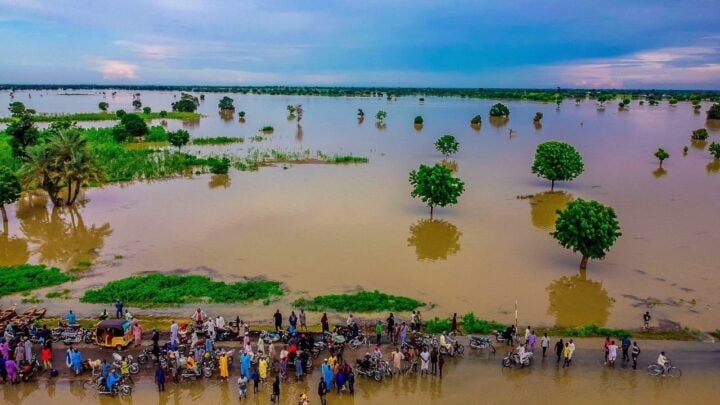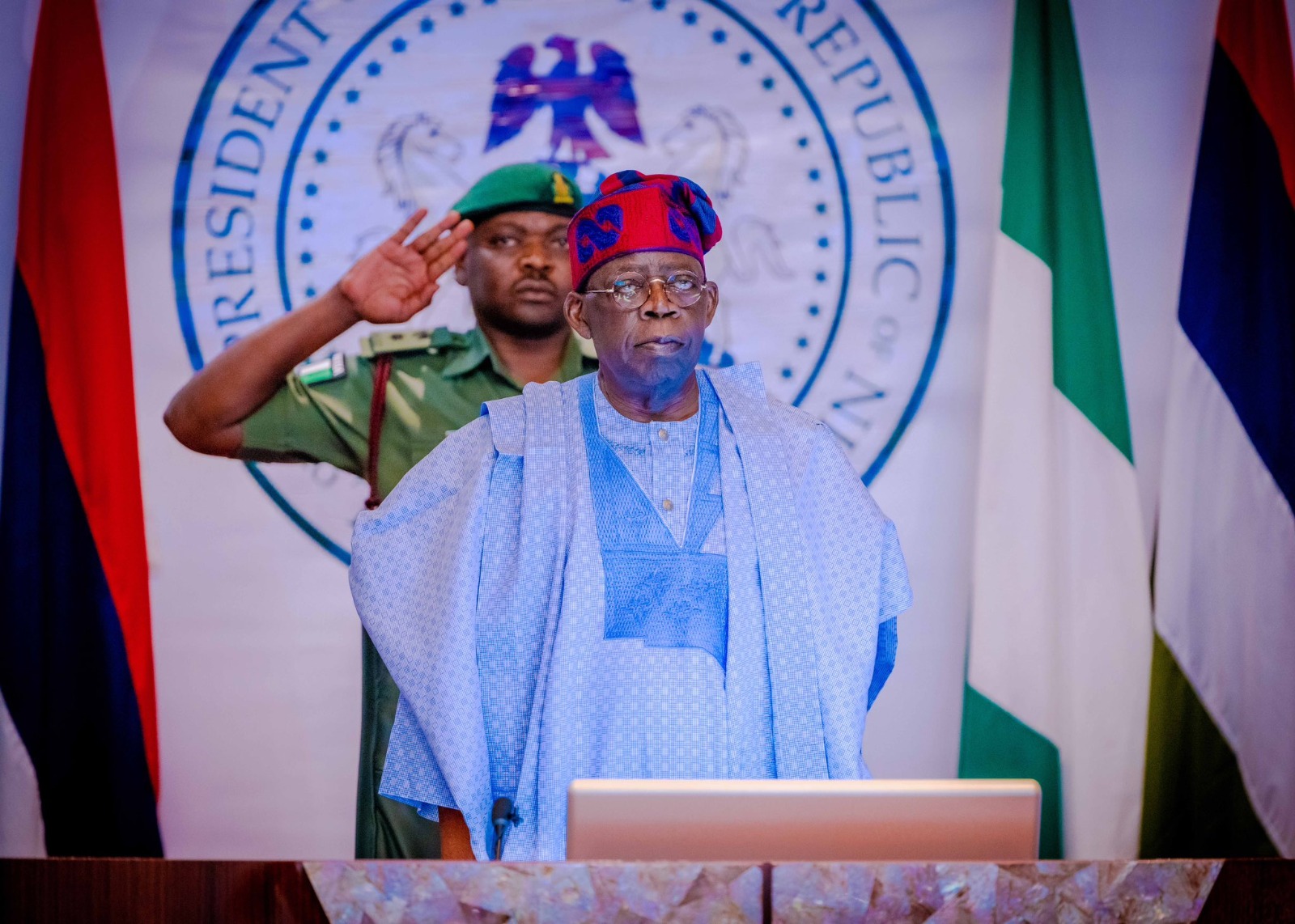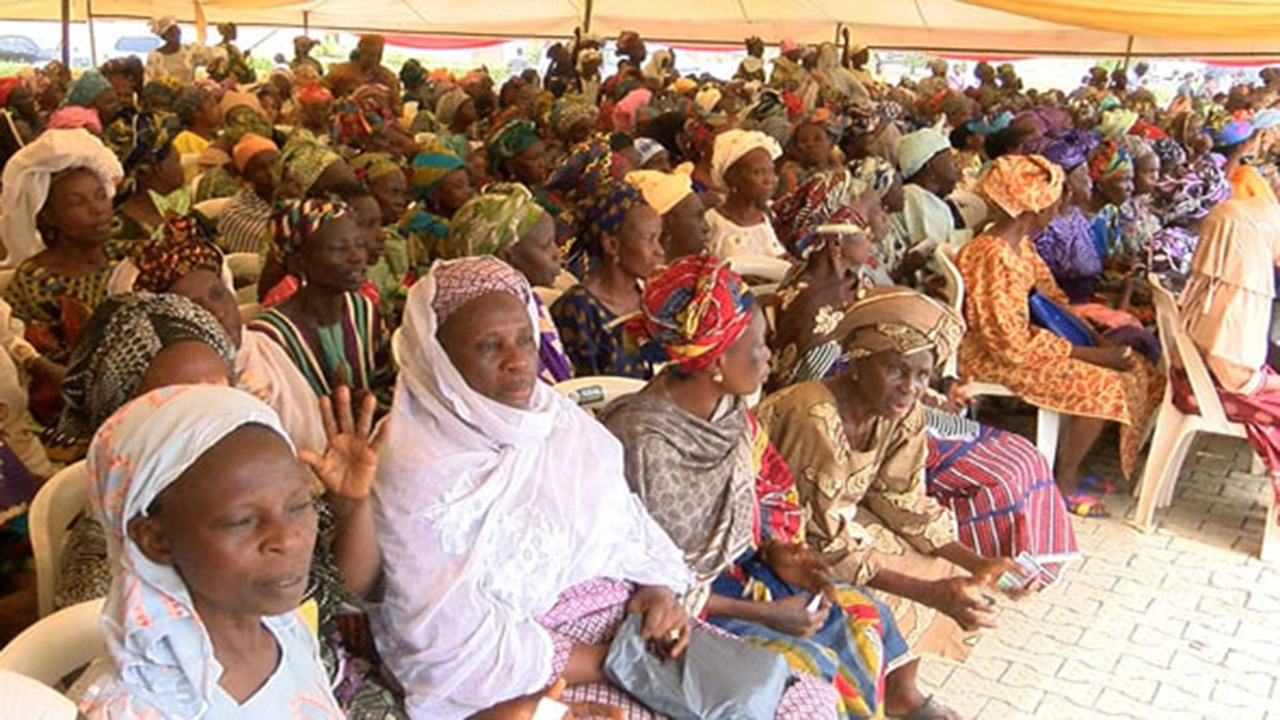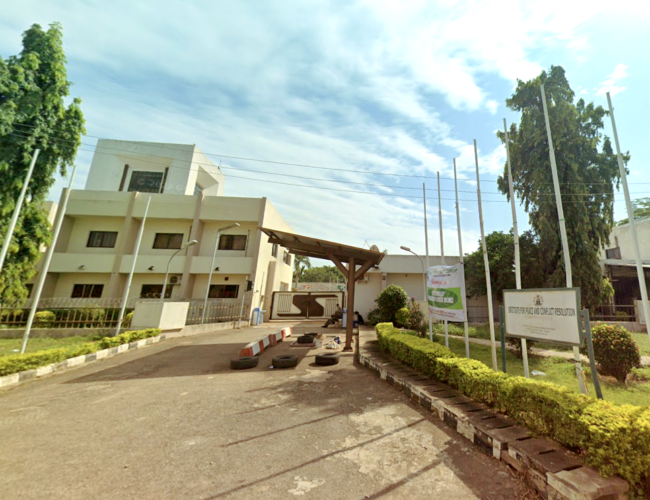File photo of flooding in Jigawa
BY ABIDEEN OLASUPO
Recently, Nigeria’s National Emergency Management Agency (NEMA) warned that at least 31 communities across 14 states of Nigeria would experience heavy downpours that may lead to devastating floods. They urged stakeholders to take precautionary measures to forestall its impact.
This looks like a deja vu of last year’s experience when floods ravaged many communities across different regions of Nigeria. The floods were described as the worst in decades. According to the Federal Government of Nigeria, it claimed over 600 lives, displaced over 1.3 million people and more than 200,000 houses damaged.
While there are many other causes of flood, especially in Nigeria, it is important to understand the critical role that climate change plays in the entire flooding episode. There is no doubt that climate change has contributed immensely to incessant precipitation. This is basically caused by unusual warmth around the planet, leading to warmer ocean waters and more moisture in the atmosphere thereby producing rains that could lead to flooding. Thus, don’t be surprised when the same drainage system that contained the penultimate year’s rain is unable to contain this year’s downpour.
Advertisement
With the unpredictable nature of climate change across the world and the fact that the phenomenon has come to stay, there is no better time to educate young people, communities, schools, and community-based organisations on how to mitigate the potentially devastating impact of climate change, especially how it affects developing countries like Nigeria.
While there are general geography subjects in secondary schools, this is an opportunity to review the curriculum to include practical courses related to climate change and how it impacts even the school and surrounding environments. This can be achieved via laboratory sessions, showing how climate change can lead to flooding and how it can be mitigated. While schools are used to excursions to fancy and historical locations, an empirical experience of locations that have been or are vulnerable to flooding due to climate change will also go a long way in improving understanding of the process. Beyond experience-sharing sessions in schools, educating students on climate change could also trigger service projects supported by educational trust funds amongst others.
Community-based organizations also have a responsibility to educate members of their communities on actions to take in order to mitigate the negative impact of climate change. There is a need to integrate social and behavioural change communications (SBCC) into strategic programming on climate change to ensure beneficiaries take necessary actions that can help mitigate impacts like flooding. For instance, training on action points can be stepped down to traditional, religious rulers and other community influencers in a bid to promote more compliance among citizens of vulnerable communities.
Advertisement
Beyond just flooding as an important effect of climate change, there are immense opportunities to develop a comprehensive toolkit on every other aspect of human endeavours that climate change can potentially influence. A climate change education repertoire will not just decentralise knowledge about the potential impact but will prompt the right actions to prevent the escalation of any negative impact.
Governments at all levels must take intentional steps by investing in both human and financial resources to decentralize climate change education ensuring climate change effects are cushioned. Thus, ministries, agencies and departments must develop a strategic framework and put the right structures in place to enable individuals, groups and communities to take effective action to mitigate the effects of climate change.
Olasupo Abideen is the Kwara state coordinator of the NotTooYoungToRun movement and global director, Brain Builders Youth Development Initiative. He can be reached via abideenolasupo@gmail.com
Advertisement
Views expressed by contributors are strictly personal and not of TheCable.
Add a comment






